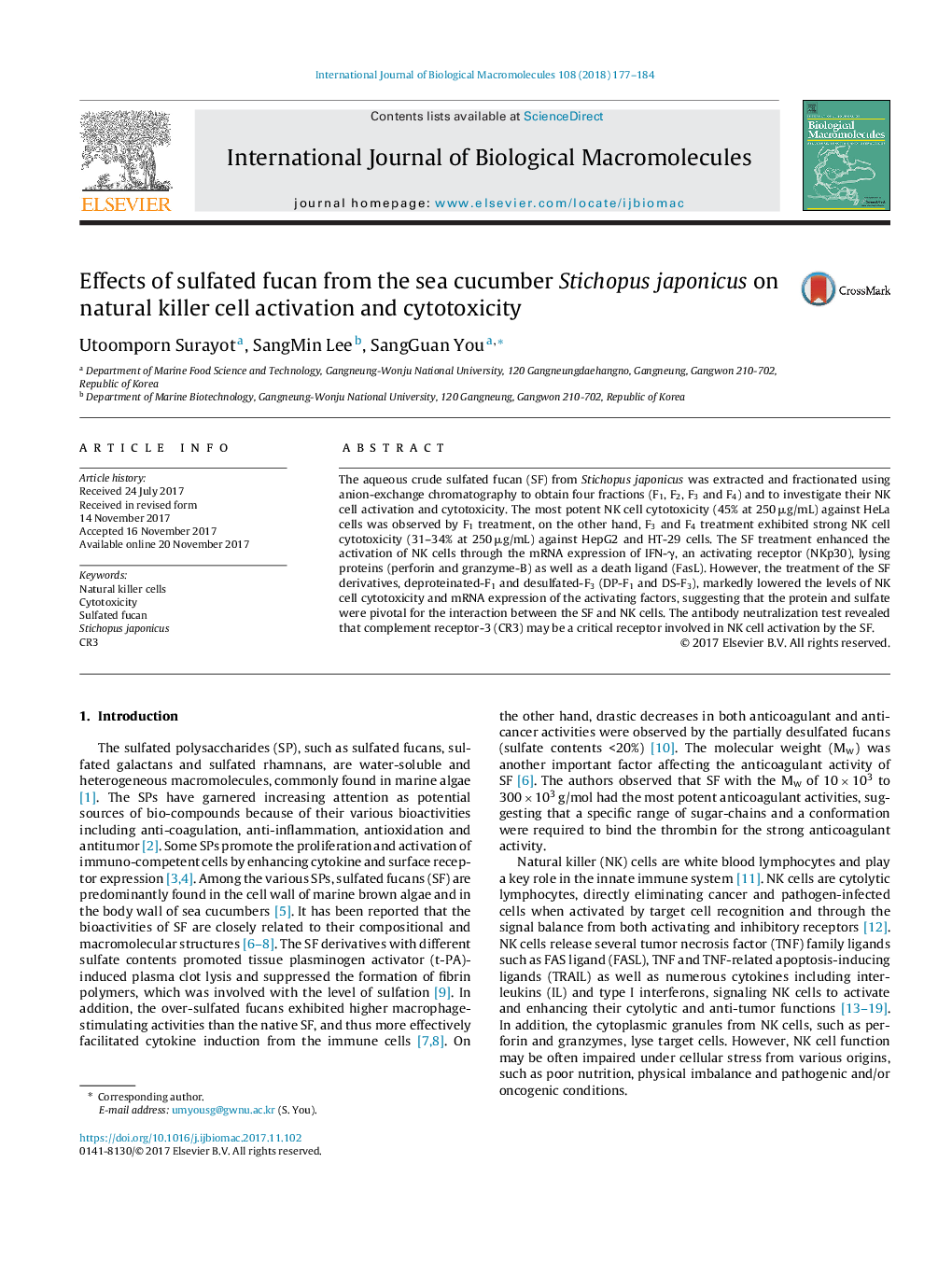| Article ID | Journal | Published Year | Pages | File Type |
|---|---|---|---|---|
| 8328309 | International Journal of Biological Macromolecules | 2018 | 8 Pages |
Abstract
The aqueous crude sulfated fucan (SF) from Stichopus japonicus was extracted and fractionated using anion-exchange chromatography to obtain four fractions (F1, F2, F3 and F4) and to investigate their NK cell activation and cytotoxicity. The most potent NK cell cytotoxicity (45% at 250 μg/mL) against HeLa cells was observed by F1 treatment, on the other hand, F3 and F4 treatment exhibited strong NK cell cytotoxicity (31-34% at 250 μg/mL) against HepG2 and HT-29 cells. The SF treatment enhanced the activation of NK cells through the mRNA expression of IFN-γ, an activating receptor (NKp30), lysing proteins (perforin and granzyme-B) as well as a death ligand (FasL). However, the treatment of the SF derivatives, deproteinated-F1 and desulfated-F3 (DP-F1 and DS-F3), markedly lowered the levels of NK cell cytotoxicity and mRNA expression of the activating factors, suggesting that the protein and sulfate were pivotal for the interaction between the SF and NK cells. The antibody neutralization test revealed that complement receptor-3 (CR3) may be a critical receptor involved in NK cell activation by the SF.
Related Topics
Life Sciences
Biochemistry, Genetics and Molecular Biology
Biochemistry
Authors
Utoomporn Surayot, SangMin Lee, SangGuan You,
